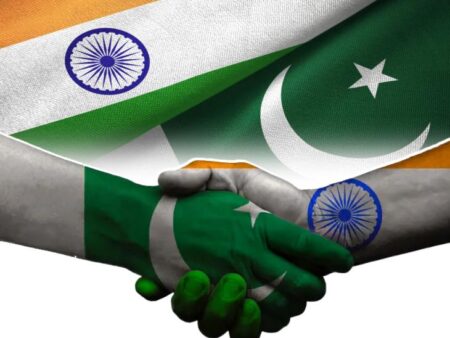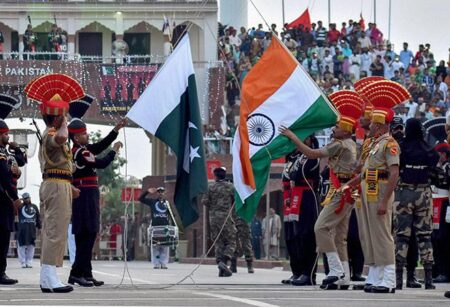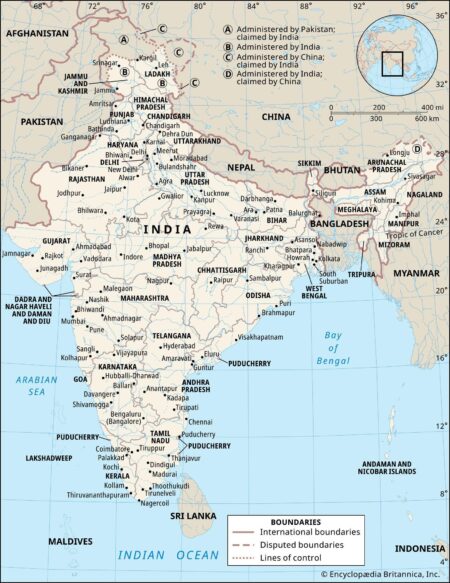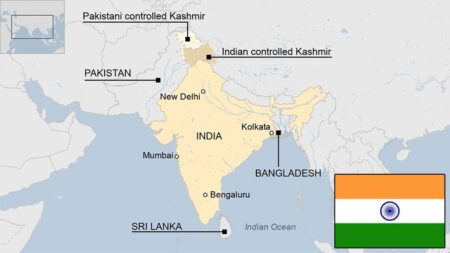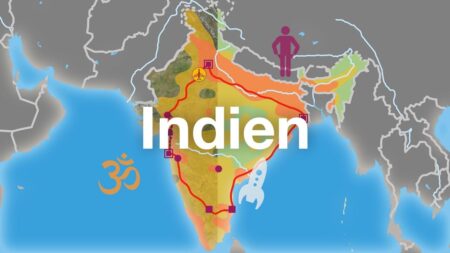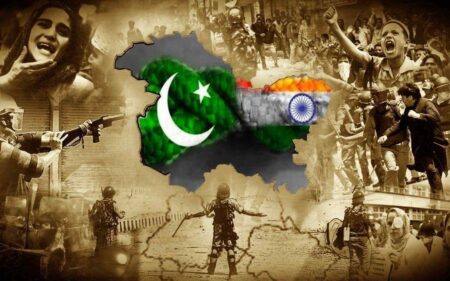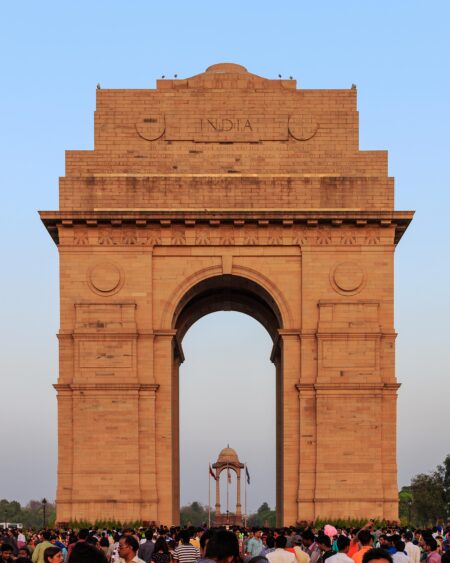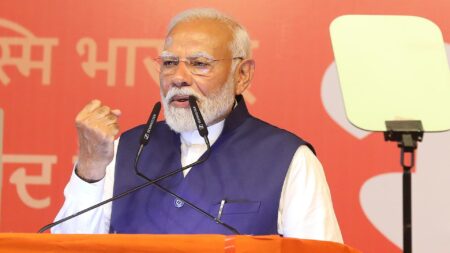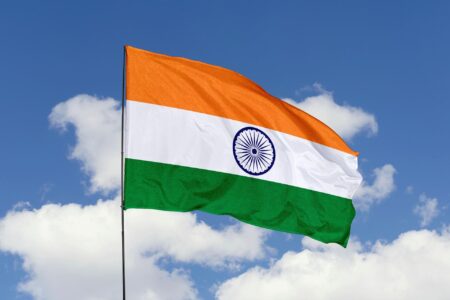In a troubling turn of events, India and Pakistan have reignited their accusations of ceasefire violations along the Line of Control, despite a recent agreement intended to ease tensions. Each nation is pointing fingers at the other for breaching the terms, heightening worries about stability in this volatile region.
Browsing: Pakistan
Pakistan’s Prime Minister Shehbaz Sharif condemned India after a school bus attack in Balochistan left five people dead, including children. He accused India of supporting terrorism, escalating tensions between the two neighboring nations.
An Indian YouTuber, celebrated for her captivating travel vlogs, has found herself in a whirlwind of controversy after being arrested in Pakistan on serious allegations of espionage. This unexpected turn of events has ignited a heated debate about cross-border tensions and the vital issue of media freedom, prompting many to demand transparency regarding the charges she faces.
In the wake of India’s recent outreach to the Taliban, China has ramped up its diplomatic efforts with both Pakistan and Afghanistan. This gathering highlights the shifting regional dynamics and strategic interests at play, as countries strive to forge stronger alliances in an ever-evolving landscape of geopolitical tensions
Pakistan has once again pledged its dedication to a ceasefire with India, highlighting a strong desire for lasting peace in the region. Yet, officials have issued a clear warning: any acts of aggression will be met with a swift and decisive response. They are calling for open dialogue as the key to ensuring stability and harmony.
India is keenly observing the evolving partnership between Pakistan and Bangladesh, as recent diplomatic interactions hint at a possible transformation in regional alliances. This intriguing development stirs concerns about the strategic landscape in South Asia, compelling India to reassess its foreign policy approach.
In a bold move to safeguard national security, Indian authorities have apprehended a diverse group of individuals linked to espionage activities for Pakistan. Among those arrested are a popular YouTuber, an ambitious post-graduate student, and a notorious smuggler. This intriguing ensemble is accused of collecting and sharing sensitive information that poses serious risks to the nation’s safety
The simmering tensions between India and Pakistan have reached a boiling point, with both nations exchanging fierce attacks. This alarming escalation has sparked fears of a possible military confrontation between two nuclear-armed powers. Experts caution that the precarious situation could lead to devastating repercussions for regional stability.
In a bold and rapid diplomatic move, Pakistan has launched an exciting new global outreach initiative, just a day after India made its own announcement. This strategic maneuver highlights the intensifying rivalry between these neighboring nations as they race to bolster their international connections and expand their influence on the world stage.
In a breathtaking showdown that has ignited celebrations across the nation, Pakistan emerged victorious against India in a nail-biting match. This remarkable win not only elevates Pakistan’s status in the cricketing world but also reignites a sense of national pride, leaving fans buzzing with excitement for the epic clashes yet to come
The ongoing Kashmir crisis serves as a poignant reminder of the unresolved challenges stemming from the 1947 partition of India and Pakistan. With tensions continuing to simmer over territorial disputes, experts caution that this region remains a volatile flashpoint, illuminating the delicate balance of peace between these two nations.
In a dramatic turn of events, India has initiated airstrikes against Pakistan, raising alarm bells among global experts. Analysts are sounding the warning about possible regional instability and are calling for urgent diplomatic efforts to prevent further escalation. The future for both nations hangs in the balance, shrouded in uncertainty.
India and Pakistan have ramped up tensions, trading accusations over a string of drone attacks along their disputed border. With both nations ramping up military operations, fears are mounting about the possibility of an escalating conflict in this volatile region.
Pakistan is ramping up its military capabilities by integrating advanced Chinese weaponry, a move that has sparked significant concern in New Delhi. Analysts are keeping a vigilant eye on this development, as it has the potential to reshape regional power dynamics and heighten tensions between these two nuclear-armed nations.
In a striking turn of events, Chinese weapons have showcased their prowess in combat tests during the recent India-Pakistan clash, delivering remarkable performance under real battle conditions. This significant development underscores China’s expanding influence in the region as military tensions continue to rise.
Analysts are sounding the alarm: Pakistan’s deployment of J-10 fighter jets in its ongoing tensions with India is a significant wake-up call for Taiwan. The impressive capabilities of these advanced aircraft underscore an urgent need for Taiwan to strengthen its defense strategy and prepare for potential challenges ahead.
In a bold statement, Indian Prime Minister Narendra Modi declared that India has only “paused” its military operations against Pakistan, underscoring the nation’s readiness for any potential escalation. This announcement sends ripples of concern about the future dynamics in the region.
In his first address following the recent India-Pakistan strikes, Prime Minister Modi passionately underscored the importance of national unity and resilience. He reaffirmed India’s unwavering commitment to safeguarding its sovereignty while urging citizens to remain calm in the face of escalating tensions.
In a remarkable diplomatic breakthrough, Australia, Bangladesh, and Nepal have united in a powerful call for an “understanding” to put an end to military actions and gunfire between India and Pakistan. This bold initiative seeks to ease rising tensions and pave the way for meaningful dialogue in the region.
In a remarkable turn of events, India and Pakistan have reached a historic agreement for a “full and immediate ceasefire,” signaling an end to the ongoing hostilities that have plagued the region. Former President Donald Trump lauded this pivotal development, highlighting the crucial need for lasting peace in this vital area of the world.

